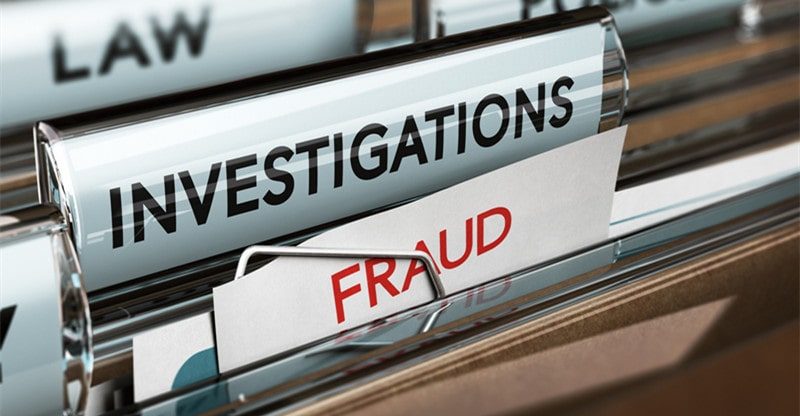5 Kinds of Corporate Frauds That Can Create Big Troubles In Your Business Life
The advancements in technology and the impact of globalization have increased the occurrences in white collar crimes – it has become very easy to steal personal information through digital means and use it against someone anonymously.
One of such crimes that can cost a lot and create significant problems for you is fraud. Fraud can be defined as the intentional misrepresentation or concealment of the material or the fact in order to cause someone financial or personal harm.
There are different types of fraud, differing from each other on the basis of severity. However, if fraud is very big, it can shake your life to the core and create big troubles for you. Those are the kinds of frauds that are most common and you can be a victim of them.
To avoid falling into these traps, it is important that you know about them. Below is a list of 5 frauds that can create big troubles in your life.
1. Financial statement fraud
Financial statement fraud is one of the most damaging frauds, although they do not occur so often. Whether you are committing it unknowingly or becoming a victim to one, this type of fraud can cause you so much trouble in your business life.
As its name suggests, financial statement fraud is the misrepresentation or concealment of the financial statement of the company or organization. The most common examples of financial statement fraud include overstatement of revenues, earnings, and assets, and understatement or concealment of liabilities. Such fraud can be committed to attracting more investors and shareholders.
However, if this fraud is detected and gets out of the organization, which it eventually does in most cases, you are going to face a lot of trouble. Enron and WorldCom are recent examples.
Therefore, it is always good to be aware of such operations, and ask for professional help whenever you encounter one.
2. Bank fraud
One of the most common kinds of corporate fraud is bank fraud, which is a fraud that victimizes the bank or any credit institution for that matter. Since banks and credit unions are billion-dollar industries, they are prime targets for big-time and small-time fraudsters.
There are different kinds of bank frauds with different intensities, and you can face some of them if banking is involved in your business life.
Some of the most common examples of bank fraud are: not returning a loan taken from the bank, dealing in counterfeit currency, fraudulent cheques, fraudulent bankruptcies, and more. A very frequent white collar crime in the US is using someone else’s bank account and credit cards to make your own purchases – this is possible through identity theft.
If your credit card statements haven’t been making sense lately and you think you have fallen into a trap of bank fraud, it is critical that you contact bank fraud lawyers and sort this case out before you lose more of your money.
3. Asset Misappropriation
Asset misappropriation falls into the category of corporate fraud in tight-knit businesses. There are different types of asset misappropriation, and these are the frauds that you, your employees, or colleagues could be committing without even the knowledge of it.
• Misuse of assets
Another common kind of asset misappropriation fraud is the misuse of a company’s assets. This fraud is, again, very hard to detect because it is done in simple ratios. If a company has an asset, like a car, which is only supposed to be used for the company’s purpose, using it for your personal objectives could be illegal.
Not only this use is unauthorized and illegal, but it is also adding up to a liability of the company, like the maintenance and fuel of a car, which should’ve been your own personal liability.
• Cash larceny and skimming of cash
This is a kind of fraud that consists of taking cash out of the company before it even enters the accounting system of the company. This fraud is very hard to detect because it doesn’t leave any evidence of taking cash because it hasn’t even been recorded yet. Moreover, accountants and supervisors are prone to commit this fraud simply because it is easy to do and doesn’t require a lot of dexterity.
Other examples of asset misappropriation include cheque tampering, fake billing, duplicate or fake expense-reimbursements, inventory schemes, accounts receivable skimming, and more.
4. Intellectual property and trade secret theft
As it is said above, most businesses run with a greater portion of it being operated with the help of technology and digital platforms, which makes it very easy to steal ideas, intellectual property, and trade secrets, and use them for their own personal or corporate benefit.
Intellectual property is defined as your own idea, invention, or creative expression. Everything from your t-shirt ideas to your business and trade secrets is your intellectual property, and if one uses it without your acknowledgment or without giving you required credit, it is known as the robbery of intellectual property.
Many small businesses who are trying to step into the corporate world get victimized when big-scale corporations commit such frauds against them. Moreover, it also happens between large-scale competitive organizations.
5. Consumer frauds
Consumer fraud can be defined as the financial or personal victimization of individuals through cons, telemarketing frauds, Ponzi schemes, identity theft, phishing, fake lotteries, and more.
A lot of big organizations operate solely on consumer frauds, while a significant amount of firms earn a great portion of their revenue from such schemes. Earlier this year, FTC sent notices to 1,100 multi-level organizations, including marketing companies, franchises, business opportunities, gig companies, and investment coaching companies.
Whether it’s a “big organization” sending you fake coupons to spend online and giving away all your credit information or a bogus tax return file, there has been a significant increase in consumer fraud. And you need to be vigilant when you are giving your information to someone through calls, texts, and emails.



